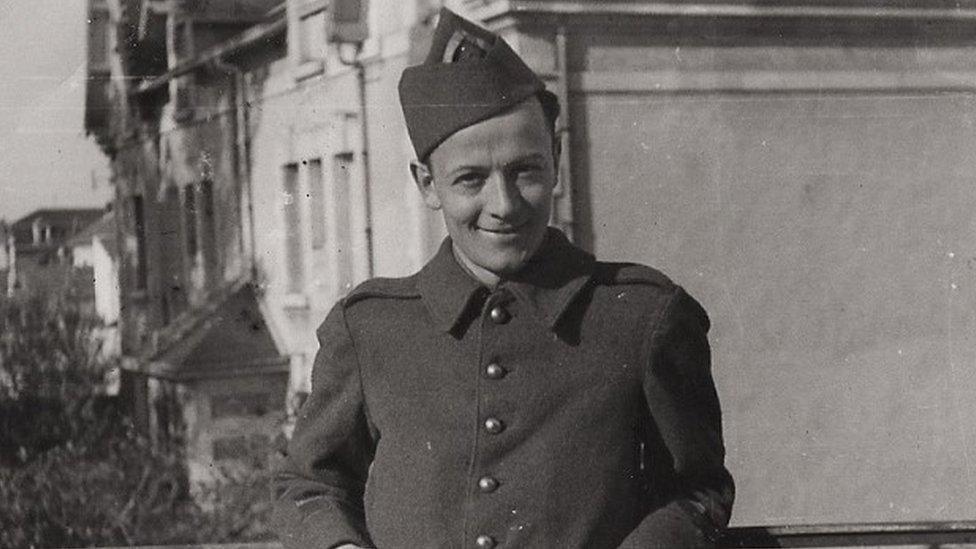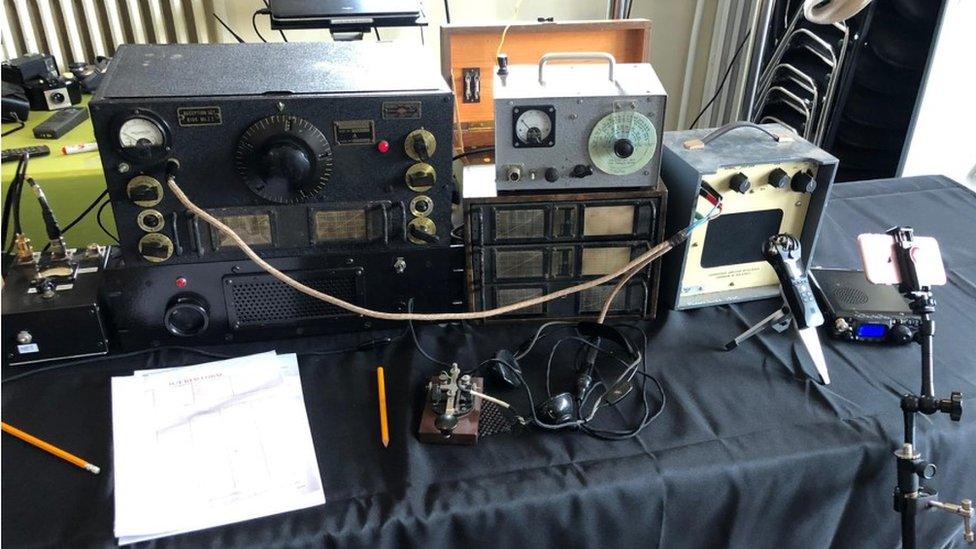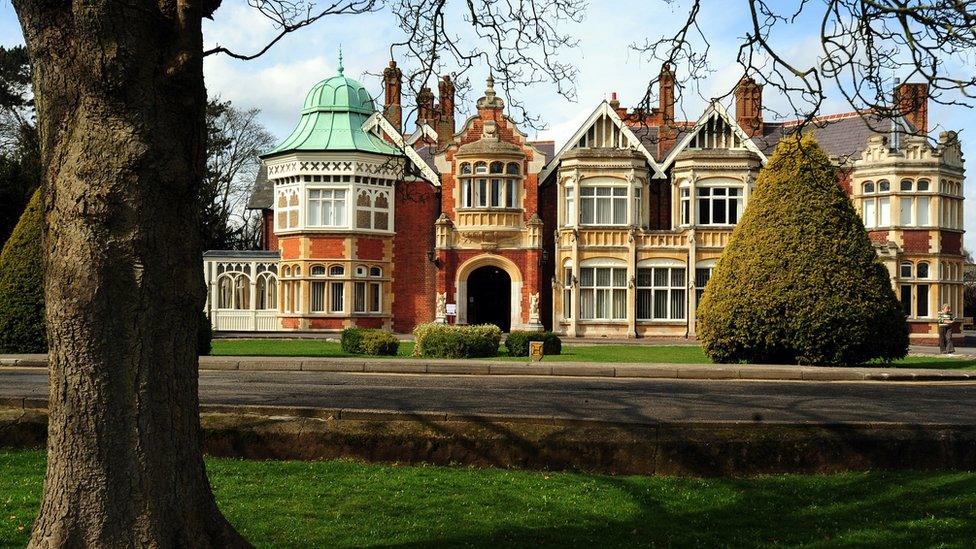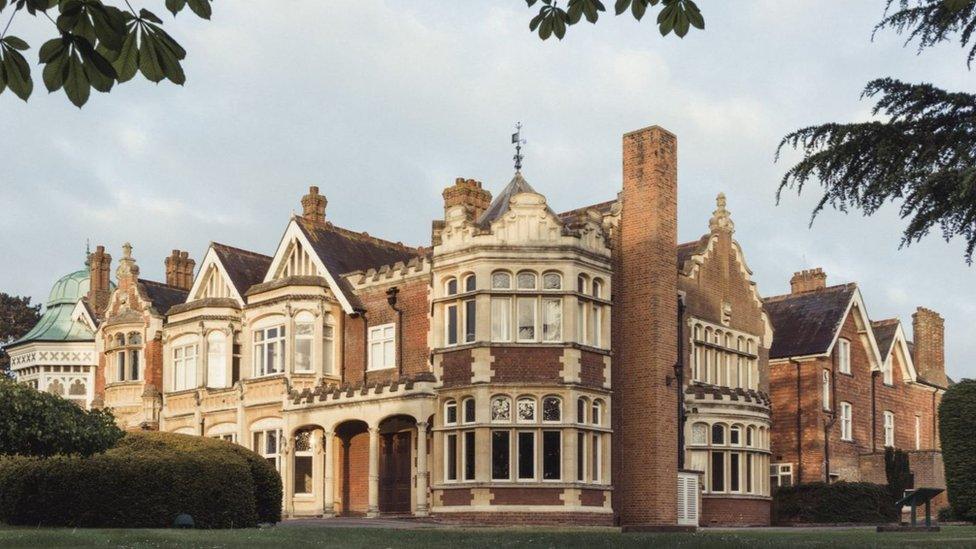Bletchley Park: WW2 secret agent's messages remembered
- Published

Georges Begue landed in France "blind" - meaning he had no reception committee - and then marched overnight to meet a member of the resistance
The first message sent back to Britain by a "trailblazing" special agent in World War Two has been commemorated, 80 years on.
Georges Begue, of the Special Operations Executive, was parachuted into occupied France in 1941 to set up wireless communications with the UK.
Amateur radio enthusiasts have marked his achievement by sending and receiving messages near Bletchley Park.
Historian Kate Vigurs said it was important to celebrate his "bravery".
French engineer Begue was the first person from the Special Operations Executive (SOE) - a secret British organisation designed to sabotage Germany's efforts - to be dropped into France, overnight on 5 to 6 May 1941.
He would be followed by almost 500 SOE agents working for F section, which would later help delay the German response to the D-Day landings in 1944.

Amateur radio enthusiasts used replica equipment to transmit Morse code messages to fellow enthusiasts in France
"He came in by parachute with his wireless set above him," said Dr Vigurs.
"He was the first person to go out and start this kind of work - a real trailblazer, and I spent much of last night thinking just how terrifying that must have been, not knowing where you were going or what you were going to do when you got there."
SOE wireless operators would use radio communications between the French resistance and the UK to ask for more agents, money and weaponry.
"The idea of SOE was to set Europe ablaze, it was to arm the resistance, organise them and prepare them for whenever the allied invasion might take place - and obviously in 1941 that was a long way away," said Dr Vigurs.

Messages from Begue and other SOE agents were received at Bletchley Park
Initially, SOE messages were received and transmitted by the secret intelligence service's equipment at Bletchley Park, until the SOE set up its own stations in Buckinghamshire in 1942.
On Thursday and Friday, Milton Keynes Amateur Radio Society is using replica equipment to transmit Morse code messages from the National Museum of Computing, external at Bletchley to fellow radio enthusiasts in central France, stationed less than a mile from where Begue landed.
Begue was captured in October 1941, but escaped from prison. He died in the 1990s.
"Marking these occasions, celebrating these people and looking at the bravery of that man dangling from the bottom of a parachute 80 years ago [is so important]," said Dr Vigurs.
"He didn't know where he was going to land, who was going to meet him, or how he was going to start all of this, and he set up the SOE in France so successfully."

Find BBC News: East of England on Facebook, external, Instagram, external and Twitter, external. If you have a story suggestion email eastofenglandnews@bbc.co.uk, external
Related topics
- Published20 October 2020

- Published24 August 2020

- Published21 August 2020
